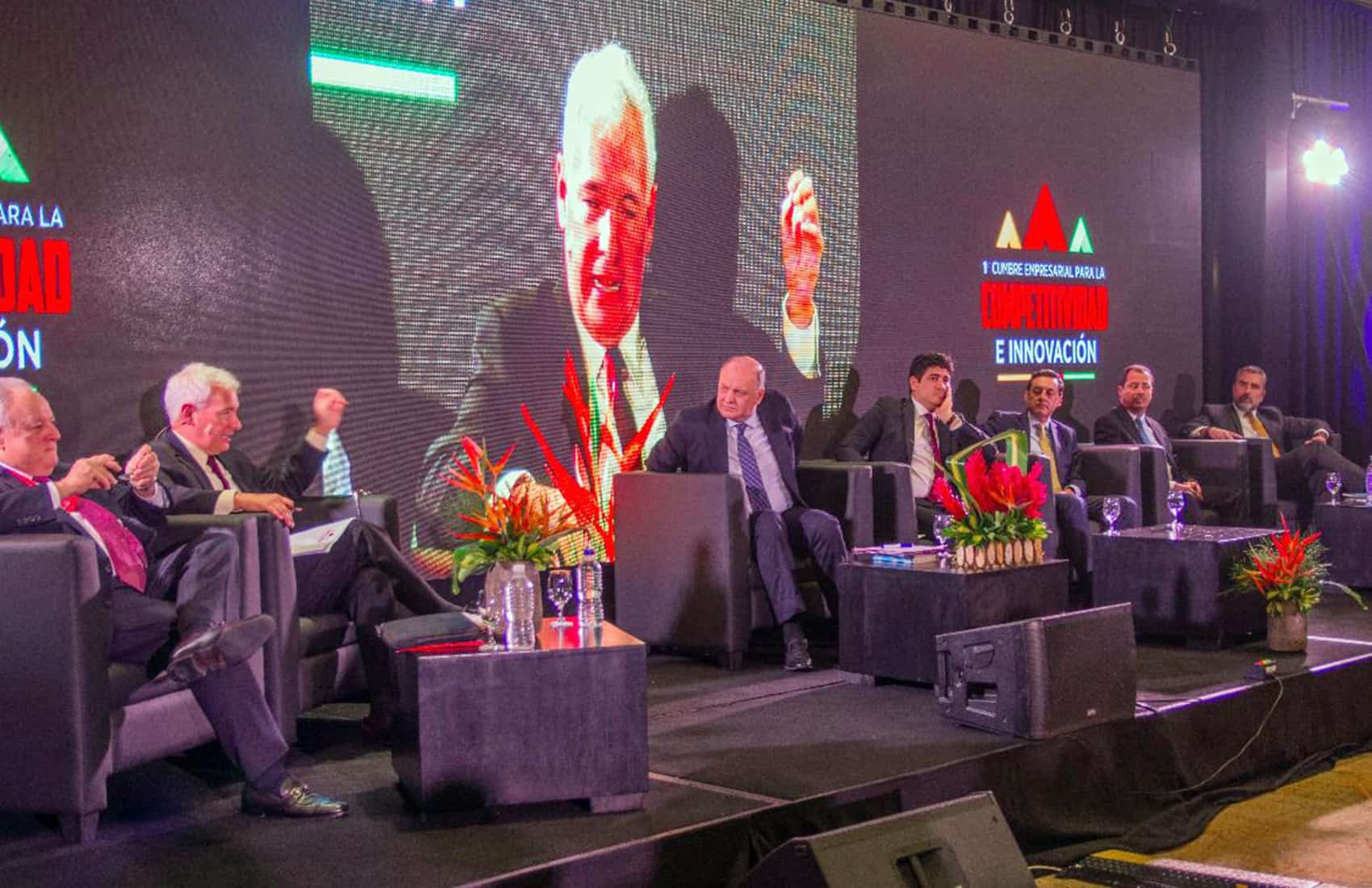Four of five presidential candidates who took part in a debate late last week said they would support breaking up the fuel monopoly held by the Costa Rican Oil Refinery (RECOPE).
The Costa Rican Chamber of Industries (CICR) organized the debate on Thursday evening, which included Otto Guevara Guth of the Libertarian Movement, Antonio Álvarez Desanti of the National Liberation Party, Rodolfo Piza Rocafort of the Social Christian Unity Party, Mario Redondo Poveda of Christian Democratic Alliance and Carlos Alvarado Quesada of the ruling Citizen Action Party, the only candidate opposed to opening the fuel market.
The candidates who agreed on the opening said consumers should not pay for financial perks for RECOPE employees, which the agency includes in its fuel price calculations.
Alvarado, the lone voice against lifting the monopoly, said that people need to stop thinking about the past.
“Instead of opening up the fuel monopoly, we need to take steps towards new technologies, such as electric transportation,” he said.
Guevara noted that he was pleased that Álvarez, Piza and Redondo supported the idea of breaking RECOPE’s monopoly, which he described as “a libertarian idea, now being embraced by other parties.”
Agreements
Aside from their opinions about RECOPE, candidates agreed on most other economic issues, the focus of the debate moderated by former CNN journalist Alberto Padilla.
All five of them agreed that they would support a boost in the use of natural gas and in the creation of an Energy Ministry.
They also agreed with the idea of supporting more contracts between public and private-sector companies for the construction of public infrastructure projects, as well as measures to improve public finances — mostly by cutting public spending — and better hiring regulations for public workers.
Some other parties have already confirmed their candidates for the 2018 presidential election. The CICR, however, indicated that it only invited candidates “who have shown support for the private sector’s contribution to the development of Costa Rica.”






